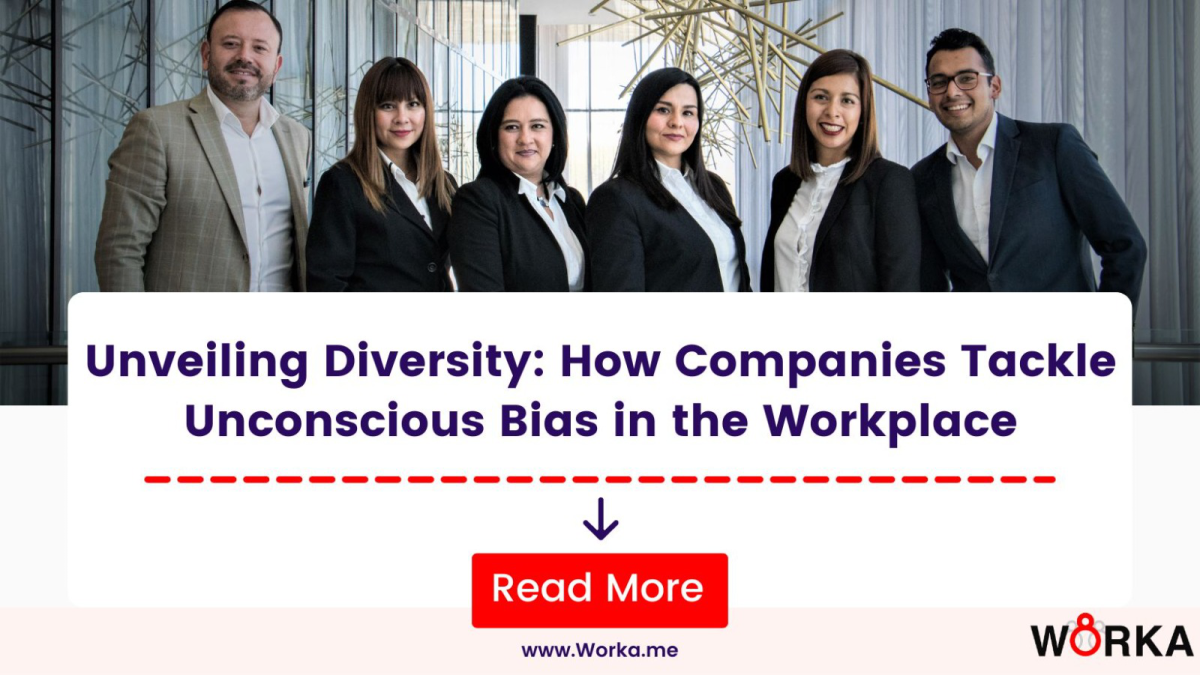Unveiling Diversity: How Companies Tackle Unconscious Bias in the Workplace

In today's dynamic business landscape, fostering diversity and inclusion is not just a moral imperative but a strategic advantage. Companies are increasingly recognising the importance of addressing unconscious bias in the workplace to create a more inclusive and equitable environment. In this blog post, we'll delve into the various strategies that forward-thinking organisations are employing to tackle unconscious bias head-on.
Unconscious Bias: A Barrier to Diversity
Unconscious bias refers to the automatic, unintentional judgments and attitudes that individuals form about others based on their background, experiences, or societal stereotypes. These biases can influence decision-making processes in the workplace, leading to disparities in hiring, promotions, and overall employee experiences.
Diversity Training Programs
Many companies are investing in comprehensive diversity training programs to educate employees about unconscious bias and its impact. These programs often include interactive workshops, case studies, and real-world scenarios to help participants recognize and challenge their biases. By fostering awareness and providing tools to mitigate unconscious bias, organisations aim to create a more inclusive workplace culture.
Inclusive Leadership Development
Leaders play a pivotal role in shaping organisational culture. Companies are increasingly focusing on developing inclusive leadership skills among their executives and managers. Inclusive leaders actively seek diverse perspectives, create an open and accepting culture, and advocate for equal opportunities. By empowering leaders to champion diversity, organisations can drive positive change from the top down.
Bias Mitigation in Recruitment and Promotion
To address bias in hiring and promotions, companies are implementing structured and objective processes. This includes blind recruitment practices, where identifying information such as names and demographics are removed from resumes during the initial screening. Additionally, establishing diverse hiring panels and using data-driven assessments can help minimise unconscious bias in decision-making.
Employee Resource Groups (ERGs)
Employee Resource Groups, or ERGs, are becoming popular for fostering inclusivity within organisations. These groups provide a platform for employees with shared characteristics or backgrounds to connect, share experiences, and offer support. By actively involving employees in the diversity and inclusion conversation, companies can better understand their workforce's unique challenges and implement targeted solutions.
Measurement and Accountability
Companies recognise the importance of measuring progress in their diversity and inclusion efforts. Setting clear diversity goals, tracking key performance indicators, and regularly reporting on progress can help hold organisations accountable for creating lasting change. Transparent communication about successes and challenges is crucial for building trust and commitment among employees.
Conclusion
Addressing unconscious bias in the workplace is an ongoing journey for companies committed to fostering diversity and inclusion. By implementing strategies such as comprehensive training programs, inclusive leadership development, and unbiased recruitment practices, organisations can create a workplace where every employee feels valued and empowered. As the business landscape continues to evolve, embracing diversity not only enriches company culture but also enhances innovation, creativity, and overall organisational success.